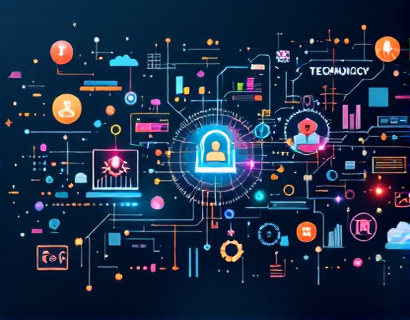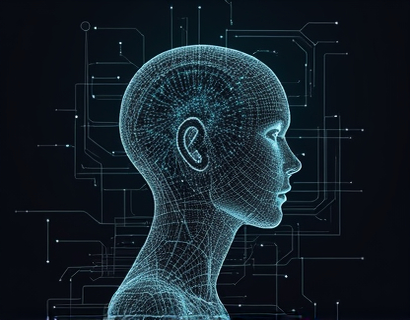Unlocking Knowledge: The Power of Online Libraries and Educational Hubs
In the digital age, the concept of a traditional library has evolved significantly. Gone are the days when knowledge was confined to physical books and limited access. Today, an online library and knowledge hub stands as a beacon of comprehensive educational resources, accessible to anyone with an internet connection. This digital repository serves as a vital tool for learners, educators, and professionals, offering an extensive array of research materials and knowledge across multiple disciplines, all within a user-friendly platform.
Access to a Wealth of Information
The primary advantage of an online library and knowledge hub is the vast and diverse collection of resources it provides. Users can explore a wide range of subjects, from the fundamental sciences to the most specialized fields of study. This inclusivity ensures that whether you are a student embarking on your first academic journey or a seasoned professional seeking to update your expertise, there is something for everyone. The platform's comprehensive nature means that users can delve into historical texts, contemporary research papers, educational videos, interactive simulations, and more, all from a single interface.
Enhancing the Learning Experience
One of the key features of these digital repositories is their ability to enhance the learning experience. Traditional learning methods are often limited by time and space, but an online library breaks these barriers. Users can access materials at any time, from any location, as long as they have an internet connection. This flexibility is particularly beneficial for those with busy schedules or those living in remote areas with limited access to physical libraries. Moreover, the interactive elements such as hyperlinks, multimedia content, and digital annotations make the learning process more engaging and effective.
Personalized Learning Paths
Modern online libraries and knowledge hubs often incorporate advanced technologies to cater to individual learning needs. Through user profiles and personalized recommendations, these platforms can curate a tailored learning experience. Users can set goals, track progress, and receive suggestions for further reading or resources based on their interests and previous interactions. This personalized approach not only makes learning more efficient but also more enjoyable, as users are more likely to engage with content that aligns with their specific interests and needs.
Resource Quality and Credibility
The quality and credibility of resources are paramount in any educational setting. Reputable online libraries and knowledge hubs ensure that the content they host meets high academic standards. This is achieved through rigorous peer review processes, collaboration with academic institutions, and partnerships with publishers and researchers. Users can trust the information they find, knowing it has been vetted for accuracy and relevance. This trustworthiness is crucial for both learners and professionals who rely on these resources for their studies and work.
Interdisciplinary Exploration
Another significant benefit of online libraries and knowledge hubs is the ease with which users can explore interdisciplinary topics. Traditional libraries often require users to navigate multiple sections or even different physical locations to find resources from various fields. In contrast, a digital platform integrates these resources seamlessly, allowing users to discover connections between seemingly disparate subjects. This interdisciplinary approach fosters a more holistic understanding of complex issues and encourages innovative thinking.
Collaboration and Community Building
Online libraries and knowledge hubs are not just repositories of information; they are also communities where learners and professionals can connect, collaborate, and share knowledge. Discussion forums, comment sections, and collaborative tools enable users to engage in meaningful dialogues, ask questions, and provide insights. This community aspect is invaluable, as it allows users to learn from each other's experiences and perspectives, enriching the educational journey.
Supporting Lifelong Learning
In an era where continuous learning is essential, online libraries and knowledge hubs play a crucial role in supporting lifelong learning. They provide a continuous stream of updated and relevant content, ensuring that users can stay current with the latest developments in their fields. Whether it's emerging technologies, new research findings, or evolving industry standards, these platforms offer the resources needed to keep knowledge fresh and applicable.
Accessibility and Inclusivity
Accessibility is a cornerstone of modern online libraries and knowledge hubs. These platforms are designed to be user-friendly and accessible to a wide range of users, including those with disabilities. Features such as text-to-speech, adjustable font sizes, and screen reader compatibility ensure that everyone can benefit from the resources available. This inclusivity aligns with the broader goal of democratizing access to education, making high-quality learning materials available to all, regardless of background or location.
Educational Tools and Resources
Beyond just storing books and articles, online libraries and knowledge hubs often include a variety of educational tools and resources. These can range from interactive quizzes and flashcards to comprehensive study guides and project templates. Such tools not only aid in the learning process but also help in reinforcing knowledge through active engagement. For educators, these tools can be invaluable in creating engaging lesson plans and assessments.
Research and Academic Support
For researchers and academics, online libraries and knowledge hubs are indispensable resources. They provide access to a vast array of scholarly articles, theses, dissertations, and conference proceedings. The ability to search and filter through extensive databases using advanced search functions saves time and enhances the efficiency of research. Additionally, citation tools and reference management features help in organizing and formatting academic work, ensuring compliance with academic standards.
Global Perspective
One of the most significant advantages of online libraries and knowledge hubs is their global reach. Users can access resources from institutions and experts around the world, gaining a broader and more diverse perspective on various subjects. This global perspective is particularly valuable in fields that are influenced by cultural, social, and economic factors across different regions. It fosters a more comprehensive understanding and appreciation of global issues.
Continuous Updates and Expansion
The digital nature of online libraries and knowledge hubs allows for continuous updates and expansion of their resources. New materials are added regularly, ensuring that the platform remains a current and relevant source of information. This ongoing development means that users always have access to the latest research, data, and insights, keeping their knowledge up-to-date and relevant in a rapidly changing world.
Cost-Effectiveness
Traditional libraries and educational resources can be costly, both in terms of purchase price and maintenance. In contrast, online libraries and knowledge hubs often offer affordable or even free access to a wealth of information. This cost-effectiveness makes high-quality educational resources accessible to a broader audience, reducing barriers to learning and promoting educational equity.
Conclusion
In conclusion, online libraries and knowledge hubs represent a transformative shift in how we access and utilize educational resources. They offer a comprehensive, user-friendly, and inclusive platform that supports learners, educators, and professionals in their pursuit of knowledge. By breaking down barriers and providing a wealth of high-quality content, these digital repositories play a crucial role in fostering a culture of lifelong learning and continuous improvement. As technology continues to advance, the potential for these platforms to enhance and expand educational opportunities is immense, making them an essential tool in the modern educational landscape.











































